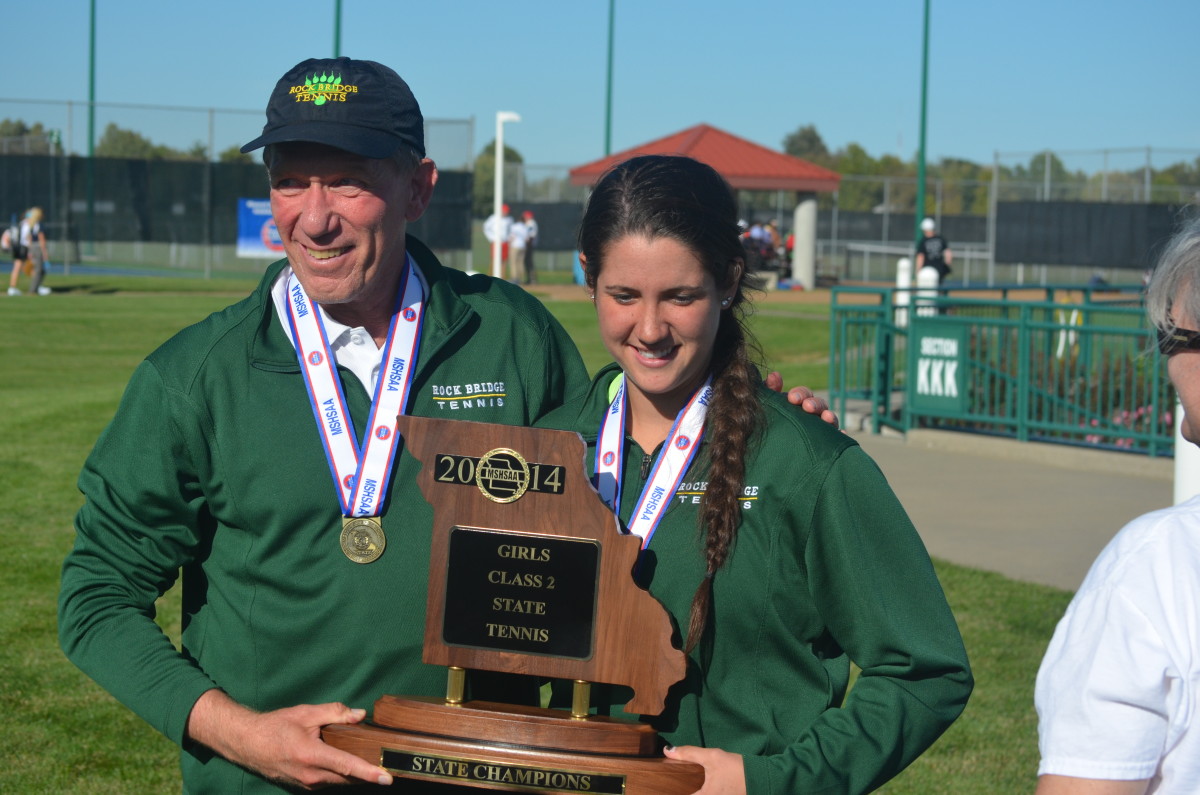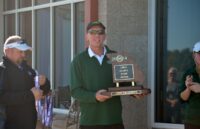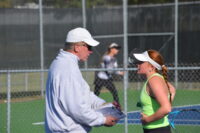Inductees
Ben Loeb

Back in the mid-1980s, anybody would have understood had Ben Loeb went off into the business world. After all, a marketing degree and an MBA were already in his back pocket.
And yet there he was, on a college campus again and trying to earn a high school teaching certificate. You see, the ultimate goal was not money but to coach a sport near and dear to his heart — tennis.
“I loved it,” Loeb said. “And then I fell in love with coaching when I was coaching the women’s team at the University of Missouri. I knew I was hooked on coaching when I coached a youth USTA event team competition in the early 80s.”
Loeb certainly shared his love for tennis ever since, becoming one of the most successful high school tennis coaches in state history. That success is leading the Missouri Sports Hall of Fame to proudly induct Loeb among the Enshrinement in Columbia Class of 2015.
A longtime tennis coach at both Hickman and Rock Bridge high schools in Columbia, Loeb has earned 946 dual meet victories and 12 state championships in 26 years.
He has coached Rock Bridge High School since 1994. His girls teams there have won seven state championships (1999, 2002, 2003, 2010, 2011, 2014, 2015), while the Rock Bridge boys teams have won four state titles (2008, 2010, 2011, 2012).
At Hickman High School, where he coached from 1989 to 1994, the boys team won state in 1994.
Additionally, his teams have combined to reach the state semifinals 29 times.
“I have to thank the boys and girls I have had a chance to coach during my career,” said Loeb, who also led the Mizzou women’s team from 1986-1988. “I put energy into it. They put energy into it. That synergetic experience has been rewarding time and time again.
“The energy we put into these journeys is what created many memories, win or lose. Winning is hard. Whether you win or lose in the end, you can have a great journey with kids and it still be a positive experience.”
Loeb’s passion for the sport goes well beyond winning. Throughout the years, Loeb challenged himself to improve his coaching style by regularly attending sports psychology seminars, coaching clinics and so forth. To him, any edge gained is an edge for his players.
It’s a remarkable story, given Loeb was not introduced to tennis until he was 11.
But the positive influence of his tennis coach at Clayton High School, John Buell, and the support of his parents, Al and Joan, played significant roles.
So, few were surprised that he enrolled at Mizzou in the mid-1980s in order to secure a teaching certificate and to coach high school.
By then, Loeb had gravitated to tennis courts everywhere he lived – at the University of Colorado while earning a bachelor’s degree, at Arizona State while finishing a master’s degree in business administration (MBA) and beyond.
At one point, while teaching tennis in Colorado, he became so intrigued that he attended sessions conducted by Jim Loehr, a renowned sports psychologist.
At another point, Loeb drove on his own dime to Oklahoma City for a United States Tennis Association regional tournament for 12-year-olds, just to pick up coaching tips.
“I still like to learn to become a better coach, not to be better than other coaches but to be the best I can be,” Loeb said. “I remember my dad, he told me, ‘Find something you’re passionate about and throw yourself into it.’ I know I did.”
Loeb’s coaching style is a mix of collaboration, utilizing positive coaching principles and also being straight- forward about holding players accountable. The results speak for themselves.
In his eyes, players who didn’t win state were just as meaningful as those who did.
But one memory stands out – the 1999 Rock Bridge girls state title. The Bruins rallied to upset St. Joseph Academy, despite trailing 4-1 and almost not needing doubles matches.
The Bruins won the next singles match and then won all three doubles, despite each reaching a third set and ending in scores of 6-4 and 7-5.
“It was just a special team, a special year,” said then-standout Elly Swetz Bethune, who recalled that Loeb, for motivation, took the team to the basketball gym and pointed out the program’s last banners from the 1980s. “It seemed like all the stars aligned and it was truly meant to be.”
The victory was emblematic of all of his teams.
“You have to have a feel for (coaching), and you have to read the individual,” Loeb said. “You want to treat all people fairly but you’re not going to treat them the same. You have to challenge people to be better, whether they are coachable or not.”

